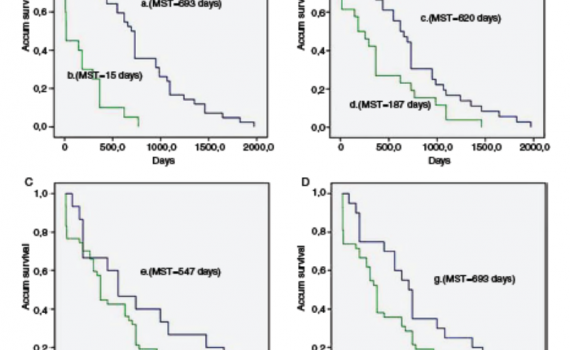
Arrhythmogenic right ventricular cardiomyopathy in boxer dogs: A retrospective study of survival.
Veterinary Record. Volume 172, Issue 10, 9 March 2013, Page 268
Caro-Vadillo, A. , Garcia-Guasch, L., Carreton, E., Montoya-Alonso, J.A., Manubens, J.
Abstract
The aim of the present study was to retrospectively evaluate survival in a population of 62 boxer dogs with arrhythmogenic right ventricular cardiomyopathy (ARVC), without left ventricular systolic failure, based on the following factors: age at diagnosis, presence of syncopal episodes, Holter arrhythmia classification and administered treatment. Medical records of boxer dogs with a diagnosis of ARVC between 2000 and 2010 were reviewed. Results showed that median survival time (MST) was longer in younger ARVC dogs than in the older ones P<0.001). MST was statistically different (P=0.012) between dogs with syncope (365 days) and dogs without syncope episodes (693 days), the probability of death within a year being 4.8 times greater in dogs with syncope (95% CI 1.48 to 15.99) than in dogs without syncope. Regarding Holter classification results, MST was 547.5 days in Holter class-2 dogs and 365 days in Holter class-4 dogs (P=0.030). There were no differences regarding treatment options; MST was 365 days (95% CI 193.615 to 536.4) in the sotalol group, 365 days (95% CI 92.86 to 637.14) in the mexiletine plus atenolol group, and 547.50 days (95% CI 170.45 to 924.55) in the procainamide group (P=0.383). According to this study, the best prognosis is for the younger boxer dog without syncope. There were no differences in survival times in relation to the different treatment options used.



